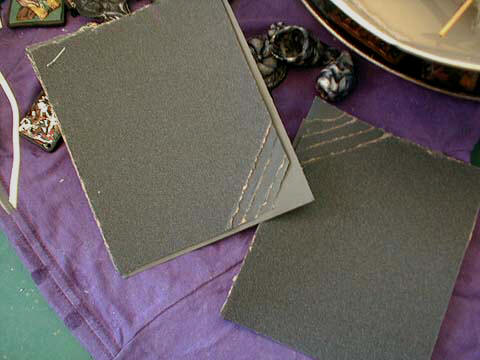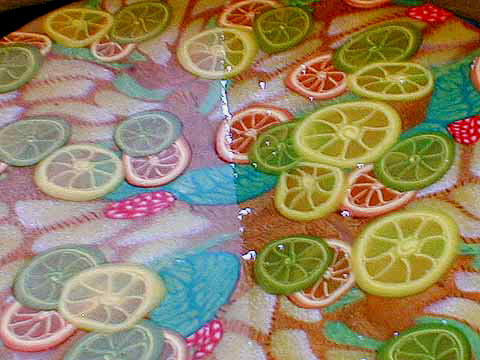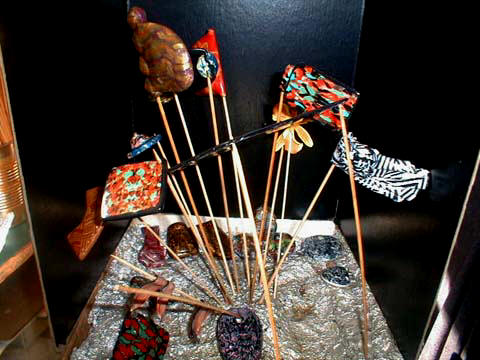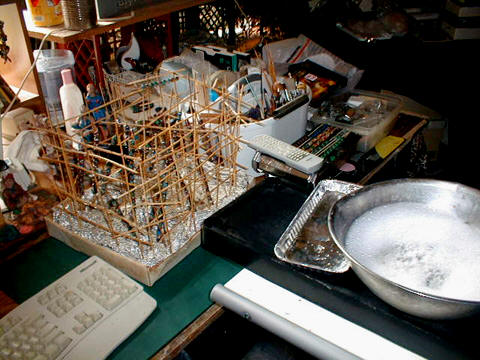Smoothing - now there's a boggle.
First thing is to make effort to avoid fingerprints. Some folks wear latex
glove
or rubber gloves if they are allergic to latex. Some just wear finger cots.
I use a cone tipped clayshaper and roll the edge of it over where there are
fingerprints.
After the curing, no matter how smooth the surface, I wet sand. Here is a
picture of how I organize the sheets of wet/dry sandpaper. You can buy them
at the local hardware store.
http://www.norajean.com/Biz-Archive/MSAT/ClayArt/workspace/SandBead-007.htm

Remember to put a squirt of liquid dish washing soap in the water when you
wet sand. It keeps the polymer
clay from sticking to the sand paper.
After sanding the items look "dusty". That's to be expected. The next thing
I do
is give anything I want shiny a dunk in acrylic floor polish. This picture
shows
you what something looks like with and without a finish.
http://www.norajean.com/Biz-Archive/Sproing-003.htm

Some folks use polymer clay specific finishes, which are a little bit
expensive
for my tastes. I use a discount industrial floor polish that I got by the
gallon
at a box store, must have been Costco. It starts out milky and dries clear.
It
is just as good as Future (or other types of retail acrylic floor polishes)
but
it's just so much cheaper.
When drying something that's been dunked in a vat of floor polish I use
bamboo BBQ skewers and keep an
eye on the "drip" at the lowest point of the item. If they
are skewers of beads I twirl them and give the skewer a whack to knock off the
excess finish. If it is a pendant I use a water color brush to "wick" the excess
drips off of the lowest point. Here's a picture of some pendants drip
drying.
http://www.norajean.com/2007/WorkTable/04-24-PendantPenance-001.htm

Here's some pictures of the wet sanding set up and some beads on skewers
drip drying.
http://www.norajean.com/Family/07-15-06-WorkTable.htm

The bamboo BBQ skewer set up is woven and temporary. When I'm not using it I just
unweave the skewers and park the box under the table. The box is the top of a
Bankers Box storage thing and what the skewers are jammed into are wads of aluminum
foil. I've used the same box for years so there are layers and layers of
aluminum foil that's been added over time.
Anyway, you just wanted to know how to smooth things. To summarize (1) don't
get finger prints on things. (2)
wet sand, (3) give it a finish of some sort.
There's other tips over at GlassAttic, here's the link
http://www.glassattic.com/polymer/sanding_tumbling.htm
The page starts out with discussions on "smoothing before sanding".
But ya know, even when you've done your best to smooth before sanding I find
most items do better with a sanding and a finish. Everything except mini
food.
Mini food is too small to wet sand, but it often does better with a finish
if
you want things to look "juicy". |
